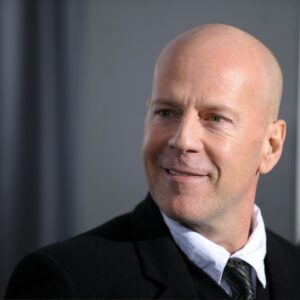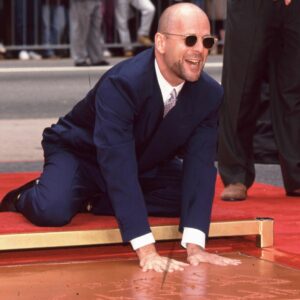Aretha Franklin was not just a singer—she was a force of nature, an icon whose influence reached far beyond the stage. Known as the “Queen of Soul,” Franklin’s legacy is more than her catalog of unforgettable hits; it is the embodiment of personal branding at its most powerful. From her roots in gospel to the way she meticulously curated her public image, Franklin’s career serves as a masterclass in how to forge a brand that is authentic, impactful, and everlasting. In an era where image and influence often matter as much as talent itself, Aretha Franklin’s story reminds us that personal branding is more than a strategy—it’s a commitment to being true to oneself.
Defining Personal Branding
In today’s world, personal branding is a necessity, not an option. The term may sound modern, but it encapsulates a long-standing idea: the conscious crafting of a public persona that communicates who you are and what you stand for. Personal branding is not confined to social media influencers, CEOs, or modern celebrities. It’s the way anyone projects their essence, whether through the clothes they wear, the stories they tell, or the values they uphold.
Franklin’s personal brand was revolutionary not just in its development, but in its execution. While many modern public figures spend their careers trying to manufacture relatability or craft an image that fits a fleeting trend, Franklin’s brand was rooted in an unshakeable authenticity. She demonstrated that a powerful personal brand isn’t built on mimicry; it’s born from a profound sense of self and the courage to express it unapologetically.
Early Foundations of Aretha’s Brand
To understand Franklin’s personal brand, one must look back to the origins of her career. Born in 1942 in Memphis, Tennessee, Aretha Louise Franklin was raised in Detroit by her preacher father, C.L. Franklin, whose sermons were famous for their fiery intensity and magnetic draw. The church was more than a place of worship; it was a crucible where Franklin honed her voice and discovered the raw power of music as a means of expression.
Her gospel training laid the foundation for a career that would revolutionize the world of music and culture. From her first recording at age 14 to her 1960s breakthrough hits such as “Respect” and “(You Make Me Feel Like) A Natural Woman,” Franklin’s early decisions reflected a clear understanding of her brand: she would be authentic, raw, and undeniable. Her music was her message, and her voice was the instrument through which she commanded respect, both in the industry and among the public.
The Power of Authenticity and Voice
Franklin’s voice was more than a gift—it was a revolution. While other singers may have delivered songs with technical precision, Franklin’s performances went beyond mere notes and rhythms. Her voice was a vessel that carried pain, joy, defiance, and love. When she sang “Respect,” it was more than a song; it was a movement. With her powerful, velvet-laced belting, Franklin imbued each song with her own experiences and emotions, creating a resonance that audiences could not help but feel.
This raw power is what set her apart from her peers. While many artists of the era struggled to break out of established genres or conform to societal expectations, Franklin refused to be boxed in. She sang gospel, soul, jazz, and pop, and did so with an artistry that was unyieldingly her own. That voice—strong, soulful, and unfiltered—was the essence of Franklin’s brand.
Aretha’s Strategic Image Management
Franklin understood that her public image was a vital component of her brand. From the beginning, she carefully selected fashion that spoke to both her elegance and her strength. The opulent gowns, the bold furs, and the radiant crowns she often wore on stage were not just fashion choices; they were statements. She was a queen, and she made sure everyone knew it.
Beyond clothing, Franklin’s choice of songs was equally deliberate. She recorded tracks that emphasized themes of empowerment, independence, and resilience. Even when she wasn’t performing a song like “Respect,” Franklin was asserting her worth. Her rendition of “Think,” for example, wasn’t just a song—it was an anthem for women and the broader civil rights movement, broadcasting the message that freedom and dignity were non-negotiable.
In an industry where many performers were controlled by record labels and dictated trends, Franklin asserted control over her narrative. She collaborated with artists who respected her vision and chose music that not only suited her voice but also aligned with her message. Her approach to image management was not about reinvention for the sake of reinvention; it was about staying true to herself while adapting to the times.
Overcoming Challenges and Reinventing Her Brand
Franklin’s career was not without its struggles. From the volatile dynamics of the music industry to personal challenges, including her complex relationships and battles with addiction, Franklin faced more than her fair share of obstacles. But what truly marked her as an icon was her ability to transform adversity into opportunity.
During the 1970s, as musical tastes shifted and the era of soul music began to evolve, Franklin reinvented herself yet again. She embraced contemporary sounds and expanded her repertoire to include pop and disco, all while maintaining the soul and gospel-infused essence that defined her. Even as the music landscape changed, Franklin remained relevant. Her ability to adapt—without sacrificing authenticity—was a testament to her strength and acumen.
Her 1972 album Amazing Grace, recorded live at the New Temple Missionary Baptist Church in Los Angeles, is a prime example of this ability to adapt. While many might have viewed gospel as a niche genre, Franklin’s rendition captured hearts far and wide, proving that true artistry transcends genre and time.
Lessons for Modern Personal Branding
Franklin’s career provides valuable lessons for today’s influencers and brands alike. The first is the power of resilience. Despite the obstacles she faced, Franklin continued to push forward, using every setback as a stepping stone. In a world where new trends often come and go with the click of a button, Franklin’s story teaches us that longevity comes not from chasing the latest fad but from staying true to one’s core values.
Secondly, Franklin’s brand was built on authenticity—an attribute that’s often spoken about but seldom practiced. She did not mold herself to fit an industry standard; she changed the standard itself. Her ability to be unapologetically herself—both on stage and off—is what made her resonate with generations of fans.
Finally, Franklin’s story is a lesson in adaptability. In a world where markets shift and public sentiment can turn in an instant, her ability to keep her brand relevant while maintaining her authenticity is a testament to the strength of her vision.
Conclusion
Aretha Franklin was more than a singer; she was an icon whose influence seeped into every corner of culture, politics, and identity. Her legacy is a testament to the power of personal branding done right: an unwavering commitment to authenticity, a strategic approach to public image, and the strength to overcome any challenge. Today, as we navigate an era where personal and professional lives are increasingly intertwined and broadcasted for the world to see, Franklin’s story remains an essential case study. Her brand was built on the foundation of who she was—powerful, resilient, and unapologetically herself—and that, more than anything, is why Aretha Franklin will always be the Queen of Soul, a true master of personal branding.





